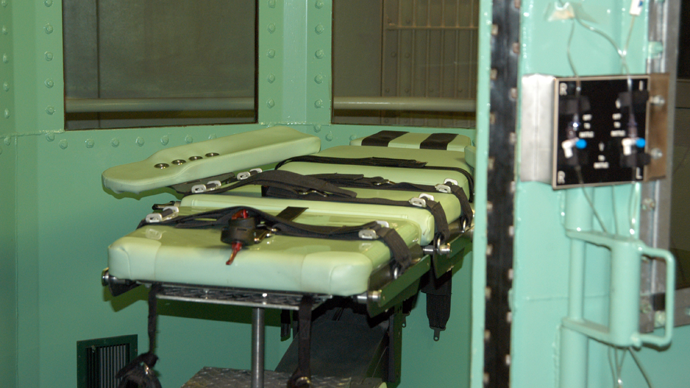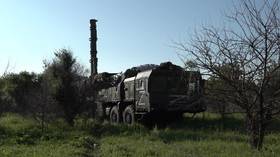Experimental execution: Oklahoma legalizes nitrogen-gassing of death-row inmates

Oklahoma has become the first US state to legalize the gassing of death row inmates if lethal injection drugs are not available. The rushed decision was made without any proper clinical trials, Robert Dunham, Head of Death Penalty Info Center told RT.
Following a spree of horrific accidents involving botched lethal injection executions across the US, Oklahoma has decided to go ahead and press forward with contingency measures for executing inmates.
Last year Oklahoma witnessed the execution of Clayton D. Lockett, who suffered from a heart attack and convulsions, and was in agony for 45 minutes prior to his death. While the Supreme Court decides whether the new drug mix is constitutional, Oklahoma Governor Mary Fallin on Friday approved the use of nitrogen in executions as an alternative option to the so-called painless death.
The new cost-effective procedure involves only a mask and a tank of nitrogen. As the inmate inhales pure gas without any oxygen, he or she is supposed to lose conciseness within seconds, while his or her body slowly dies from asphyxiation.
READ MORE: Oklahoma considering ‘efficient’ gas chambers for executions
But politicians in Oklahoma did not pay much attention to medical evidence and veterinarian practice and expertise, Robert Dunham, Head of Death Penalty Information Center told RT.
“It has not been tested on humans because it is unethical to test it on humans,” Dunham said. Admitting that there is no way to run such lethal tests on humans, he said that at the same time there was “no indication that they looked into what the experience has been with the veterinarians.”
Yet proponents of the new method argue that it is a painless way to depart this life and one of the most humane ones.
“Nitrogen-induced hypoxia is a painless form of execution that doesn’t require any specific pharmaceutical compounds or any medical expertise to administer,” Rep. Mike Christian, R-Oklahoma City, told The Tulsa World .”It is a far better alternative to the electric chair should lethal injection ever become unavailable, and so I thank the governor for signing this bill into law.”
READ MORE: Oklahoma set to resume executions 9 months after botched attempt
To come up with the new execution method, the state commissioned a study which last month concluded that “an execution protocol that induced hypoxia via nitrogen inhalation would be a humane method to carry out a death sentence.”
But despite all the claims of a humane method of execution, Dunham told RT, that at its core the death penalty is a violent act.
“The execution of a person, the taking of their life against their will is a violent act,” he said, pointing out that recent capital punishment cases conclude that any evidence rather that DNA evidence can be mishandled and that innocent people might die.
“What the DNA has shown us is that you can't really have a whole lot of confidence in the rest legal process in capital cases,” he said.
The governor’s decision, Dunham says, “illustrates that when legislatures are having these really fast, thoughtless responses, they’re not taking into consideration things you would expect a careful legislature would.”













